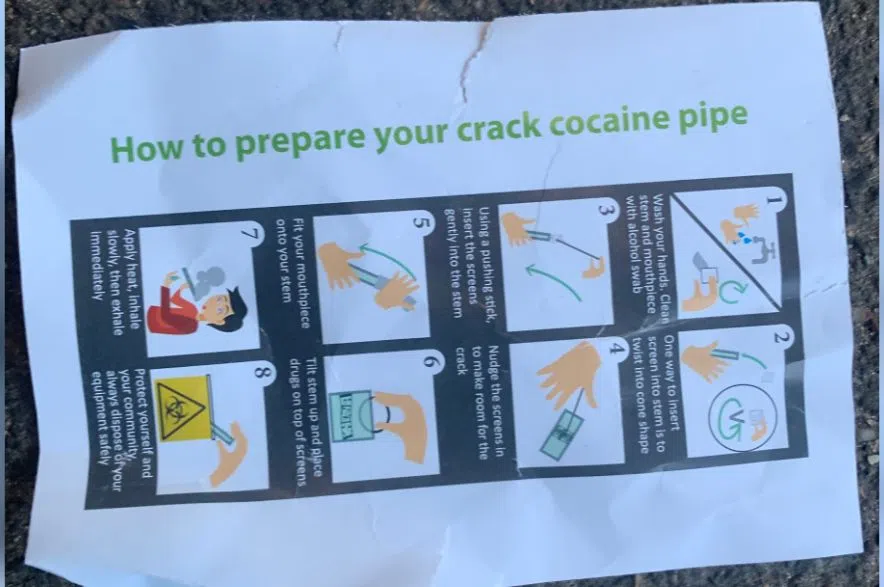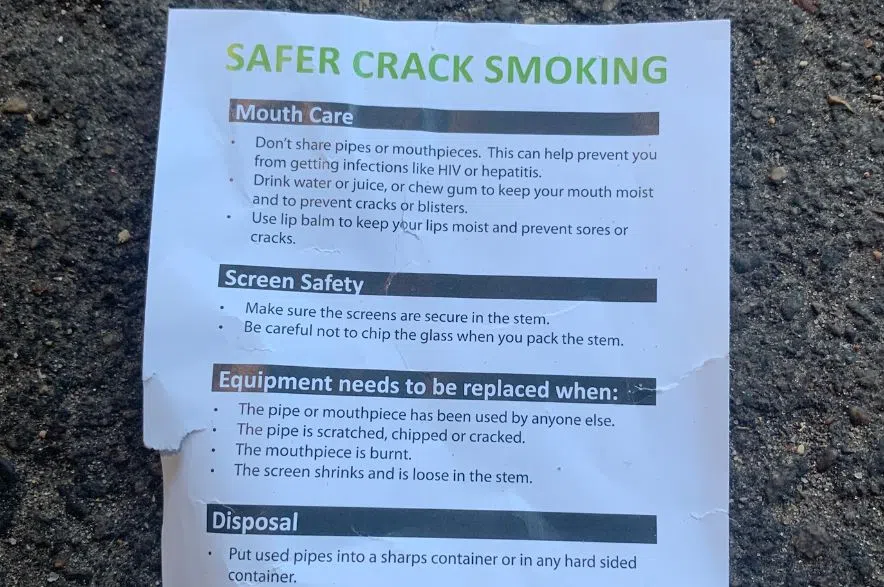The provincial government will no longer provide meth and crack pipes to drug users in Saskatchewan.
In addition, the government will no longer provide instructions for illicit drug use and will ban third-party organizations from using provincial funds to do so.
The changes come as the province enacts its five-year plan for mental health and addictions – which the government said is focused on treatment and recovery – and seeks to respond to drug use in a manner that’s balanced with public safety.
Tim McLeod, the province’s minister for mental health and addictions, said providing the tools and knowledge needed to consume illegal drugs doesn’t help users recover.
“Providing taxpayer-funded pipes for smoking illicit drugs and instructions for how to use them sends the wrong message to people who we want to help,” McLeod said in a statement.
“Instead, the message coming from the health care system should be that there is hope for recovery, and there is hope available through treatment.”
Needle rules changing
Needle exchange services will be required to operate on an exchange basis, the health ministry said on Thursday, noting that a core purpose of those programs is to reduce the number of needles scattered in communities as litter.
Savings from the changes will be used to enhance needle-pickup services, the ministry added, and needle exchange programs will be required to provide pickup services in the areas where they are operating.
Naloxone still available
While pipes and instructions will no longer be provided, the government said it will continue to provide naloxone, an emergency medication that can save people after an overdose of opiates like fentanyl. Naloxone is provided at no cost at hundreds of locations around the province, the government noted, with even more to be added.
Test strips for fentanyl and benzodiazepine will also still be available, as will the use of drug checking infrared spectrometers. The province’s drug alert system will continue to advise users of potentially hazardous drugs, the government added.
The province is also currently working to add 500 more addiction treatment spaces to the province, of which 168 have so far been announced.
McLeod emphasized that both recovery and public safety are concerns for the health ministry as it works to enact the new plan.
“The goal of the health care system should always be getting people the treatment they need to overcome addictions and live healthy, safe lives in recovery,” McLeod added.
“How the health care system responds to people who have yet to walk the path to recovery needs to strike a balance with public safety priorities.”













